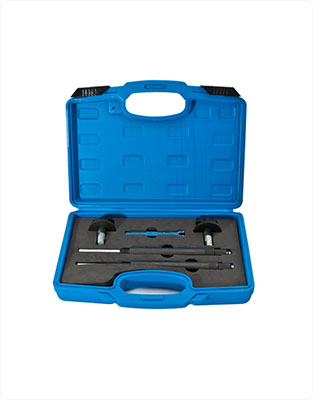Unleashing the Power of Automation
In the rapidly evolving landscape of technology, the integration of auto tools has become a pivotal force driving efficiency across various industries. Automation is not just a buzzword; it's a transformative tool that streamlines processes, reduces manual labor, and enhances overall productivity.
From manufacturing to healthcare, auto tools have revolutionized the way tasks are accomplished. Robots and automated systems are now capable of performing intricate operations with precision, ensuring higher output and minimizing errors. This shift towards automation not only accelerates production but also allows human workers to focus on tasks that require creativity and critical thinking.
Precision Engineering: The Heart of Auto Tools
One of the key advantages of auto tools lies in their ability to execute tasks with unparalleled precision. Whether it's the automotive sector, where robotic arms assemble intricate components, or the aerospace industry, where automated systems ensure flawless manufacturing, precision engineering is at the heart of these tools.
Auto tools equipped with advanced sensors and artificial intelligence can adapt to changing conditions in real-time, ensuring accuracy in complex operations. This precision not only enhances the quality of products but also significantly reduces wastage, making processes more sustainable.
Redefining Human Labor: Collaboration between Man and Machine
Contrary to the fear that automation might replace human jobs, the integration of auto tools has led to a new era of collaboration between man and machine. Routine and repetitive tasks are now handled by automated systems, allowing human workers to focus on tasks that require creativity, problem-solving, and emotional intelligence.
This collaboration has not only elevated the skill sets required in various industries but has also led to the creation of new job roles in fields like robotics maintenance, AI programming, and system optimization. The synergy between human intuition and machine efficiency is proving to be a powerful combination for driving innovation.
Challenges and Opportunities in the Auto Tools Era
While the benefits of auto tools are undeniable, challenges do exist. The initial investment in implementing automated systems can be significant, and the transition process may pose hurdles for some industries. Additionally, concerns about data security and the ethical use of AI technologies need to be addressed to ensure a responsible and sustainable future.
However, these challenges also present opportunities. Companies that embrace auto tools can gain a competitive edge by improving operational efficiency, reducing costs, and staying ahead of technological trends. Moreover, the ongoing advancements in auto tool technologies create new possibilities for innovation and business growth.
In conclusion, the integration of auto tools marks a paradigm shift in the way industries operate. From precision engineering to redefining human labor, the impact of automation is reshaping the future of work. While challenges exist, the opportunities presented by auto tools are vast, promising a future where efficiency and innovation go hand in hand.
 EN
EN


















